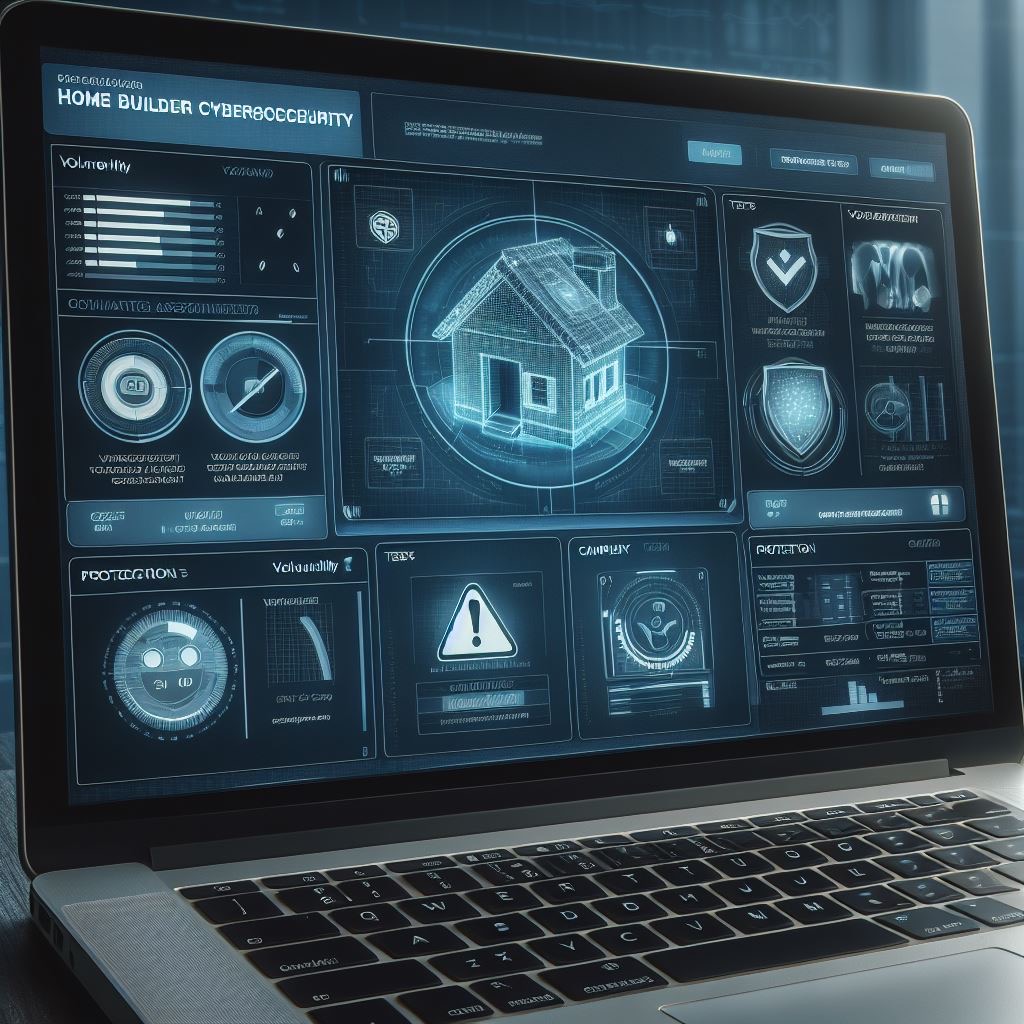
Defying All Odds - Day 1: The Construction Industry: A Prime Target for Cyber Attacks
“You have to be prepared to fight and finish your own battles.” - Jim Harbaugh
Introduction:
In today's rapidly evolving digital landscape, the construction industry has become increasingly dependent on technology to drive efficiency and productivity. From project management software to digital blueprints, technology has revolutionized the way construction companies operate. However, this increased reliance on digital tools also brings along a new set of challenges, with cyber threats posing a significant risk to the industry. In this article, we will explore the importance of cybersecurity in the construction industry and shed light on the potential consequences that can arise from neglecting this critical aspect of business operations.
In our previous day's article, we talked about how ZATIS helped a construction company defy the odds by winning the battle against hackers and cybercriminals. Join us as we embark on a journey where we explore the latest trends, best practices, and innovative solutions that empower businesses to stay one step ahead of hackers and cybercriminals.
The Construction Industry: A Prime Target for Cyber Attacks
The construction industry may not be the first sector that comes to mind when thinking about cyber threats. However, it is important to recognize that construction companies possess valuable assets, such as intellectual property, financial information, and sensitive client data. These assets make them an attractive target for cybercriminals looking to exploit vulnerabilities and gain unauthorized access to valuable information.
The Potential Consequences of Neglecting Cybersecurity
The consequences of neglecting cybersecurity in the construction industry can be far-reaching and detrimental to both the company and its stakeholders. Here are some potential consequences that construction companies may face:
1. Financial Losses:

A cyber-attack can result in significant financial losses for construction companies. This can include direct financial theft, expenses associated with remediation efforts, legal fees, and potential lawsuits from affected clients.
2. Reputational Damage:

A cybersecurity breach can lead to reputational damage, eroding the trust and confidence that clients, partners, and investors have in the company. This can have long-lasting effects on the company's ability to secure new projects and maintain existing relationships.
3. Project Delays:

Construction projects are often governed by strict timelines. A cyber-attack can disrupt operations, causing delays in project completion and potentially incurring additional costs.
4. Legal and Regulatory Compliance Issues:

Many construction companies are subject to legal and regulatory requirements regarding data protection and privacy. A cybersecurity breach can result in non-compliance, leading to legal consequences and potential fines.
5. Loss of Intellectual Property:

Construction companies often develop proprietary technology, innovative designs, and trade secrets. A successful cyber-attack can result in the theft of intellectual property, compromising the company's competitive advantage and future prospects.
The Importance of Proactive Cybersecurity Measures
To mitigate the risks associated with cyber threats, construction companies must adopt a proactive approach to cybersecurity. Implementing robust cybersecurity measures can help protect the company's assets, maintain client trust, and ensure the smooth operation of projects. Here are some key steps that construction companies can take:
1. Employee Education and Training:

Employees are often the first line of defense against cyber threats. Providing comprehensive training on cybersecurity best practices, such as identifying phishing emails and using strong passwords, can significantly reduce the risk of successful attacks.
2. Regular Security Assessments:

Conducting regular security assessments, including vulnerability scanning and penetration testing, can identify potential weaknesses in the company's systems and infrastructure. This allows for timely remediation before cybercriminals can exploit these vulnerabilities.
3. Secure Network Infrastructure:

Implementing robust firewalls, intrusion detection systems, and encryption protocols can help safeguard the company's network infrastructure from unauthorized access and data breaches.
4. Access Control and Authentication:

Implementing strong access control measures, such as multi-factor authentication and role-based access controls, can ensure that only authorized individuals have access to sensitive information.
5. Data Backup and Recovery:

Regularly backing up critical data and implementing a robust disaster recovery plan can help minimize the impact of a cyber-attack and facilitate the restoration of operations.
Conclusion:
In an increasingly digitized world, the construction industry must recognize the importance of cybersecurity and take proactive measures to protect its valuable assets. Neglecting cybersecurity can have severe consequences, including financial losses, reputational damage, project delays, legal and regulatory compliance issues, and loss of intellectual property. By prioritizing cybersecurity and implementing robust measures, construction companies can safeguard their operations, maintain client trust, and ensure their long-term success in an evolving digital landscape.
Want to know if your construction company is at major risk of getting hacked? Click here for a FREE 15-Minute Cyber Consult.

5 Reasons Your Construction Company Needs a Cybersecurity Risk Assessment. 👊
It is important for construction companies to conduct a cybersecurity risk assessment for several reasons:
1. Protection of sensitive data:
Construction companies handle a vast amount of sensitive data, including financial information, project details, client information, and employee records. Conducting a cybersecurity risk assessment helps identify potential vulnerabilities and ensures appropriate safeguards are in place to protect this data from unauthorized access, data breaches, or theft.
2. Mitigating financial losses:
Cyberattacks can result in significant financial losses for construction companies. These losses can stem from data breaches, ransomware attacks, or the disruption of critical systems. By conducting a cybersecurity risk assessment, companies can identify potential weaknesses in their IT infrastructure and take proactive measures to mitigate the financial risks associated with cyber threats.
3. Maintaining business continuity:
A successful cyber-attack can disrupt construction projects, delay timelines, and impact the overall business operations. By conducting a risk assessment, construction companies can identify potential vulnerabilities and implement robust cybersecurity measures to ensure business continuity. This includes having backup systems, disaster recovery plans, and incident response protocols in place.
4. Protecting reputation and client trust:
Construction companies rely on their reputation and client trust to secure new projects and contracts. A cybersecurity breach can undermine trust, damage the company's reputation, and lead to the loss of clients. By conducting a risk assessment and implementing appropriate cybersecurity measures, construction companies can demonstrate their commitment to protecting client data and maintaining a secure operating environment.
5. Compliance with regulations:
Construction companies may be subject to industry-specific regulations and legal requirements regarding data protection and cybersecurity. Conducting a risk assessment helps identify any gaps in compliance and ensures that the company meets the necessary regulatory obligations.
Overall, conducting a cybersecurity risk assessment allows construction companies to proactively identify and address potential vulnerabilities, protect sensitive data, mitigate financial losses, maintain business continuity, protect their reputation, and comply with relevant regulations.
Other resources to help you get started with Cybersecurity
Start your own Cybersecurity initiative:
Here is a quick checklist to get you started with your Cybersecurity initiative. Remember imperfect action beats inaction, get started and keep pushing for progress and awareness with your people.
Update your software
Secure your files
Require passwords
Encrypt devices
Use multi-factor authentication
Protect your wireless network
Make "SMART SECURITY" your business as usual
Require strong passwords
Train all staff
Have a plan
